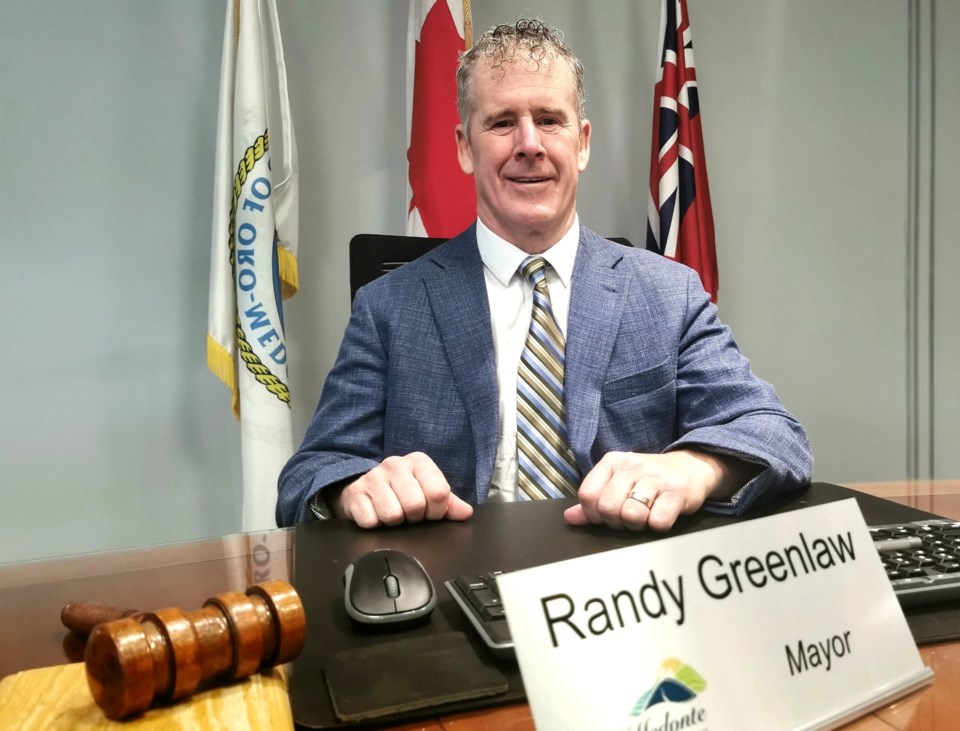When it comes to the strong mayor powers that are proposed to be bestowed upon Oro-Medonte's mayor on May 1, some members of the township’s council have more questions than answers.
Deputy Mayor Peter Lavoie was concerned that the strong mayor powers give the local mayor and only one-third of council – two members – the majority vote.
On a seven-member council without strong mayor powers, a majority would be four votes.
“The vote is no longer in line with quorum,” he said. “There is an obligation that members of council cannot accumulate in a quorum for the purpose of doing business outside of chambers.
“However, now that the quorum and the number of parties necessary to make a decision are not the same, in fact, three people could meet outside of this council and make a number of decisions and then bring them into chambers and execute them," Lavoie added.
He wondered what safeguards have been put in place to contemplate such outcomes.
Coun. Lori Hutcheson found the description of the powers “nebulous” and wondered aloud what guardrails are in place to ensure a mayor’s not going outside the guidelines.
“For me, I’m just finding there’s just not enough clarity around what a strong mayor can and cannot do,” she said.
Coun. Richard Schell thought granting strong powers to mayors sent the wrong message to voters.
“With all due respect for our premier’s decision to make this happen, I think it’s throwing a little bit of a blanket of confusion on the public about democracy,” he said.
Following a presentation to council during Wednesday’s meeting on what strong mayor powers encompass, township clerk Yvonne Aubichon tried her best to respond to councillors’ concerns, but was quick to note she’s not an expert on the legislation. She was hopeful she would receive a training session from the Ministry of Municipal Affairs and Housing in the near future.
Aubichon said she was only made aware of the plan to expand strong mayor powers to 169 Ontario municipalities, including Oro-Medonte and Springwater townships, on April 9, when a release was made through the Ontario Regulatory Registry.
The release advised municipalities to respond to the news by April 16.
“As you can see, there was a very short turnaround for everyone to wrap their heads around this,” Aubichon said. “Regardless of whether mayors use these powers, the framework, such a bylaws, policies, practices and procedures, must be reviewed and put in place to facilitate these changes.
“There’s a lot of background work to be done,” she added.
Aubichon’s presentation included the history of the legislation and its priorities – constructing and maintaining infrastructure to support more residential housing.
“That was the primary function of that bill,” she said. “So the initial intent of the legislation was introduced by the province to accelerate the delivery of provincial municipal priorities, particularly around housing development.”
According to the presentation, strong mayors will have enhanced administrative and legislative powers.
In the administrative arena, strong mayors:
- Will have the ability to direct municipal employees on matters related to provincial priorities
- Will be able to appoint/dismiss their municipality’s chief administrative officer (CAO)
- Determine the organizational structure of the municipality
- Power to hire, dismiss or exercise any other prescribed employment powers including other non-statutory departments heads
- Power to appoint local boards and committees
- Power to establish or dissolve committees
- Power to appoint chairs and vice-chairs of committees
- Power to assign functions to committee
Enhanced legislative powers allow a strong mayor to:
- Veto certain council decisions (bylaws) if they impede provincial priorities, particularly housing
- Propose bylaws related to provincial priorities and require council to consider them. (This applies to bylaws pertaining to the Municipal Act, Planning Act and section 2 of the Development Charges Act.)
- Propose the municipal budget prior to Feb. 1, though council can amend it. The mayor also has a veto power over council’s budget amendments
Aubichon noted that strong mayors do not have absolute power and she provided a number of examples:
- Council can override a mayoral veto with a two-thirds majority vote
- While the mayor proposes the budget, council has the power to make amendments
- Municipalities with strong mayors powers are expected to maintain public transparency regarding the use of these powers (e.g., through dedicated webpages and reporting of mayoral decisions)
Once township staff have received training and reviewed best practices from other municipalities operating under this legislation, they will report back to council with more information and any changes that may be required.
Strong mayor powers were extended to Barrie Mayor Alex Nuttall in June 2023. He most recently used those powers to have city staff prepare a bylaw to rezone 43-acre property for a manufacturing building on Lockhart Road, and to establish a conservation trust to protect the area around Little Lake.
North of Oro-Medonte, in Orillia, strong mayor powers were granted to Don McIsaac on April 3 to deal with the ice storm that plunged the city into darkness, prompting the declaration of a state of emergency. His first use of those new powers was to rescind the employment offer of CAO made to Trevor Lee of Guelph; instead, he appointed Amanpreet Singh Sidhu to the position, a decision which stirred up controversy.




